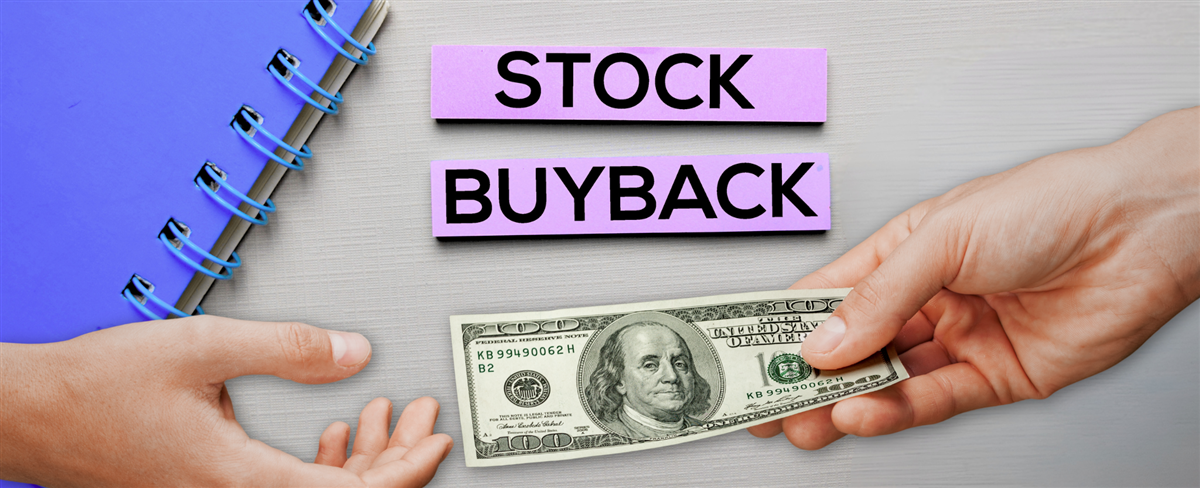
Share buyback authorizations are useful indicators to stay aware of. Share buybacks are often thought of as an indirect return of capital to shareholders. When a company buys back its shares, it lowers the number of outstanding shares. All else being equal, this increases earnings per share (EPS), which often leads to higher stock prices. They can also indicate that management has confidence in the state of the company. The company must buy shares in the market. They likely wouldn't do so if they believe their shares are overvalued.
However, excessive buyback activity can be a bad thing. It can indicate that the company lacks investment opportunities to grow the business and sees buybacks as its best use of capital. Larger buyback programs make more sense at mature firms that are ultimately looking to reward shareholders. It is important to note that a share buyback authorization does not guarantee the company will proceed with it. Below, I’ll detail four firms that have recently announced significant buyback authorizations. All market capitalization figures are as of the Dec. 9 close.
Qualcomm: Chip Giant Authorizes Giant Buybacks
Qualcomm (NASDAQ: QCOM), a big player in semiconductors, announced a share buyback program worth $15 billion on Nov. 6. Based on its $179 billion market capitalization, this represents over 8% of the company’s value. The company primarily designs chips for handsets, automobiles, and Internet of Things (IoT) devices. Its Snapdragon chips are among the most advanced semiconductors in Android phones and Windows laptops.
An interesting point to note is how Qualcomm is pushing AI. They want to embed chips in devices to run workloads internally. This differs from the data center model, where devices connect to the cloud. The advanced chips within a data center then perform the computational work and send the information back to the end device. Qualcomm also has a large patent business. Patent offices issued Qualcomm the fourth-most patents in the world in 2023.
AT&T Looks to Return $40 Billion to Shareholders
The telecom giant AT&T (NYSE: T) just confirmed plans for significant buybacks and dividends. It plans to put $20 billion toward each of these over the next three years. Currently, it has authorized $10 billion of these buybacks, amounting to 6% of its market capitalization. On its recent Investor Day, the company touted its success in strengthening its balance sheet and reducing its debt.
The company looks to continue the success of its fiber optic strategy for connecting homes and businesses to the internet. A key strength has been the firm's improving ability to cross-sell its fiber and cell phone internet services. The company wants to keep growing its fiber network and increase the number of fiber users who bundle their cell phone plans. Bundling makes users less likely to change carriers, creating a sticky customer relationship.
CME Group: Billions in Buybacks and Variable Dividends
CME Group (NASDAQ: CME) authorized a $3 billion buyback program on Dec. 5. This represents over 3% of the company’s $85 billion market capitalization. Additionally, it announced a $5.80 per share annual variable dividend for shareholders on record as of December 27, 2024. The total size of this dividend is $2.1 billion.
The company has made a habit of issuing these large annual dividend payments in addition to its quarterly payments. Based on its Dec. 9 closing share price, the additional payment would give the company a 4.4% dividend yield. CME Group holds the position of the largest derivatives exchange in the United States, according to 2023 data. It is also ranked as the third largest in the world.
Wingstop: Using a Juicy Method to Buyback Shares
Last is by far the smallest of these firms, Wingstop (NASDAQ: WING). On Dec. 5, the company authorized a $500 million buyback program, which equates to 5.2% of the company’s market capitalization. This comes after the near completion of a $250 million buyback program it started in 2023. The company is dedicating $250 million of this program to an accelerated share repurchase (ASR) program that will begin in Q4.
Under the ASR, the company gives the money to an investment bank that will repurchase the shares on its behalf. The bank borrows shares from the market and immediately delivers them to the company, impacting EPS. The investment bank then actually repurchases shares in the market over time, which it returns to those who lent the shares. This allows for very fast execution of the company’s plan to repurchase shares.
The article "4 Stocks Planning to Return Capital With Hefty Buyback Programs" first appeared on MarketBeat.







